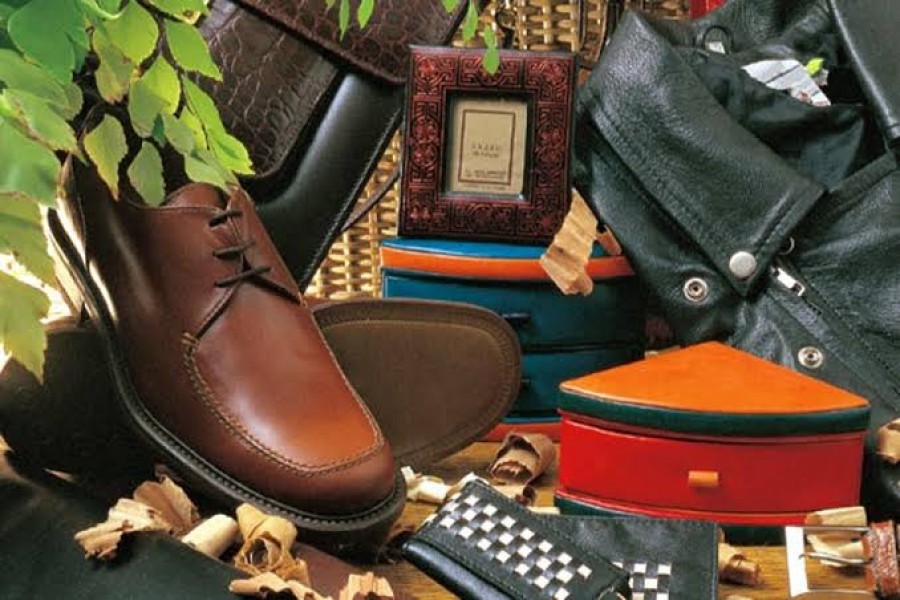
Published :
Updated :

The third Bangladesh Leather Footwear & Leathergoods International Sourcing Show (BLISS) held recently in the capital has brought to the fore the prospect of good export potential of the country's leather sector as well as the critical challenges it is faced with. While good response from international brands and retailers was heartening for local participants, the need for fulfilling compliance protocols figured as the most important issue in exporting leather and leather products, especially to major markets. No doubt the BLISS, organised at a time when the country's leather industry is facing problems from both within and beyond, is an eye opener for all stakeholders to do the needful to live up to the crucial needs of this sector.
The most indispensable requirement of the leather industry now is Leather Working Group's (LWG) certification -- a mandatory prerequisite for accessing the US and EU markets, among others. A multi-stakeholder group, the LWG is made up of member brands, retailers, leather and leather product manufacturers, chemical suppliers, machinery suppliers, technical experts and other service providers that work together to develop and maintain protocols to assess environmental compliance and performance capabilities of leather manufacturers. Recognised as the key tool towards promoting sustainable and appropriate business practices within the leather industry, LWG certification is of foremost importance for aspiring leather exporters around the globe. For Bangladesh, absence of this certification no doubt constitutes the key barrier to exports, more so to even sustain its past performance in exports. Exporting without this certification leaves no choice for Bangladesh's leather and leather good exporters to look up to China where the prices are reportedly far lower than elsewhere, and are essentially shut out from upmarket destinations like the EU and the US.
An audit team of the global compliance certification body is scheduled to visit Bangladesh within two months to look into the facilities and capacities of the Savar Tannery Industrial Estate (STIE) -- the country's leather hub. But as reports say the hub is yet to make the much talked about central effluent treatment plant (CETP) fully functional -- one of the key compliance parameters for LWG certification. However, according to industry insiders, with some quick improvements in the CETP-related works Bangladesh at this stage can hope for the bronze certificate, the lowest-graded LWG certification. To qualify for superior grades -- the silver and finally the gold certification, there are a lot of requirements to fully comply with. A good deal needs to be done by the tanneries too for being fully compliant.
Clearly, it is the LWG certification or the absence of it that poses the most fundamental challenge to exporting leather and leather goods from Bangladesh. It is generally believed that once the certification is there, exporters will be at ease to not only access high valued markets, but will also find themselves better placed for price negotiation. This, industry experts are confident, will be a huge watershed for the entire leather sector to grow up to its potential.


 For all latest news, follow The Financial Express Google News channel.
For all latest news, follow The Financial Express Google News channel.